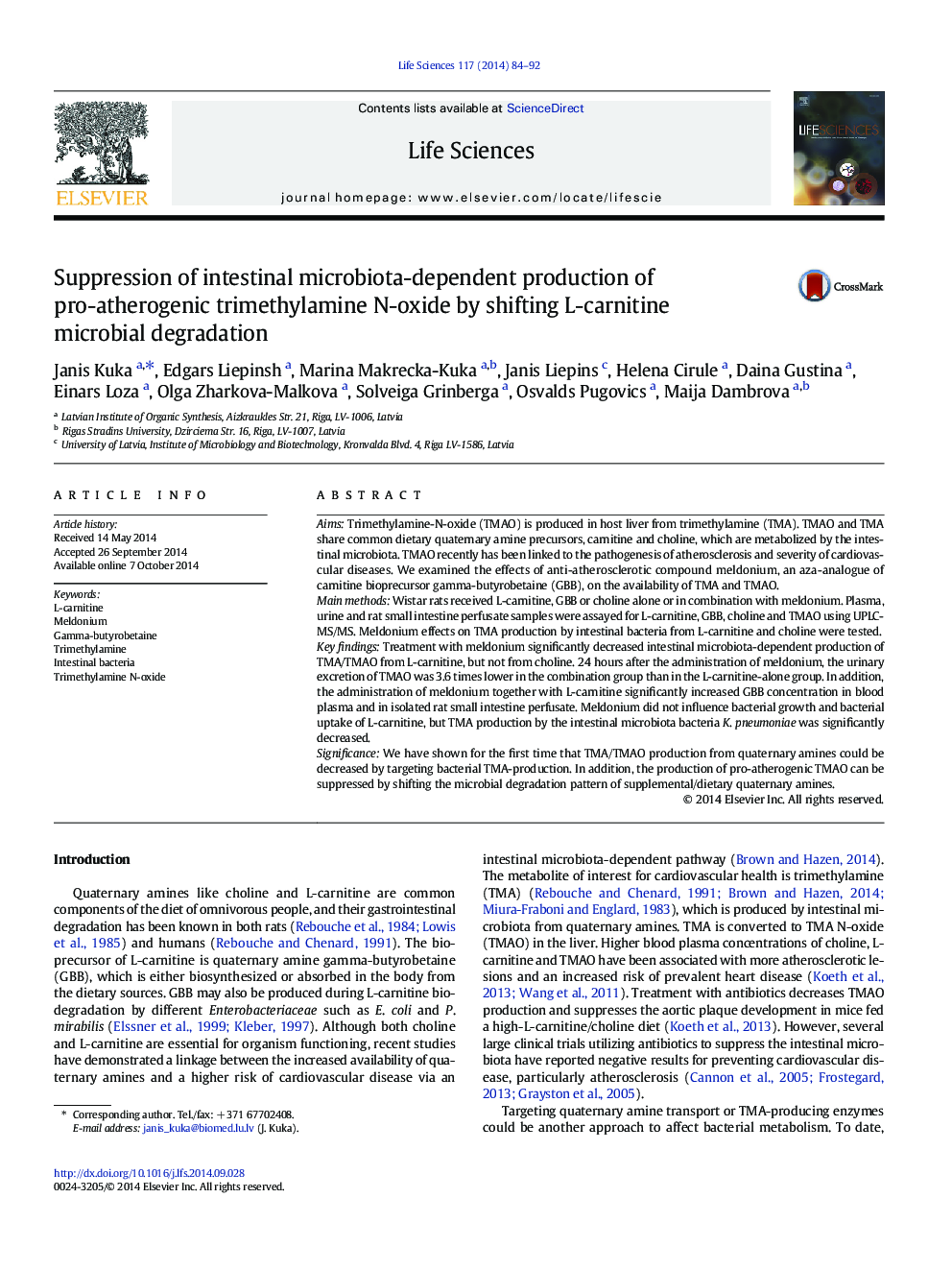| Article ID | Journal | Published Year | Pages | File Type |
|---|---|---|---|---|
| 2551001 | Life Sciences | 2014 | 9 Pages |
AimsTrimethylamine-N-oxide (TMAO) is produced in host liver from trimethylamine (TMA). TMAO and TMA share common dietary quaternary amine precursors, carnitine and choline, which are metabolized by the intestinal microbiota. TMAO recently has been linked to the pathogenesis of atherosclerosis and severity of cardiovascular diseases. We examined the effects of anti-atherosclerotic compound meldonium, an aza-analogue of carnitine bioprecursor gamma-butyrobetaine (GBB), on the availability of TMA and TMAO.Main methodsWistar rats received L-carnitine, GBB or choline alone or in combination with meldonium. Plasma, urine and rat small intestine perfusate samples were assayed for L-carnitine, GBB, choline and TMAO using UPLC-MS/MS. Meldonium effects on TMA production by intestinal bacteria from L-carnitine and choline were tested.Key findingsTreatment with meldonium significantly decreased intestinal microbiota-dependent production of TMA/TMAO from L-carnitine, but not from choline. 24 hours after the administration of meldonium, the urinary excretion of TMAO was 3.6 times lower in the combination group than in the L-carnitine-alone group. In addition, the administration of meldonium together with L-carnitine significantly increased GBB concentration in blood plasma and in isolated rat small intestine perfusate. Meldonium did not influence bacterial growth and bacterial uptake of L-carnitine, but TMA production by the intestinal microbiota bacteria K. pneumoniae was significantly decreased.SignificanceWe have shown for the first time that TMA/TMAO production from quaternary amines could be decreased by targeting bacterial TMA-production. In addition, the production of pro-atherogenic TMAO can be suppressed by shifting the microbial degradation pattern of supplemental/dietary quaternary amines.
